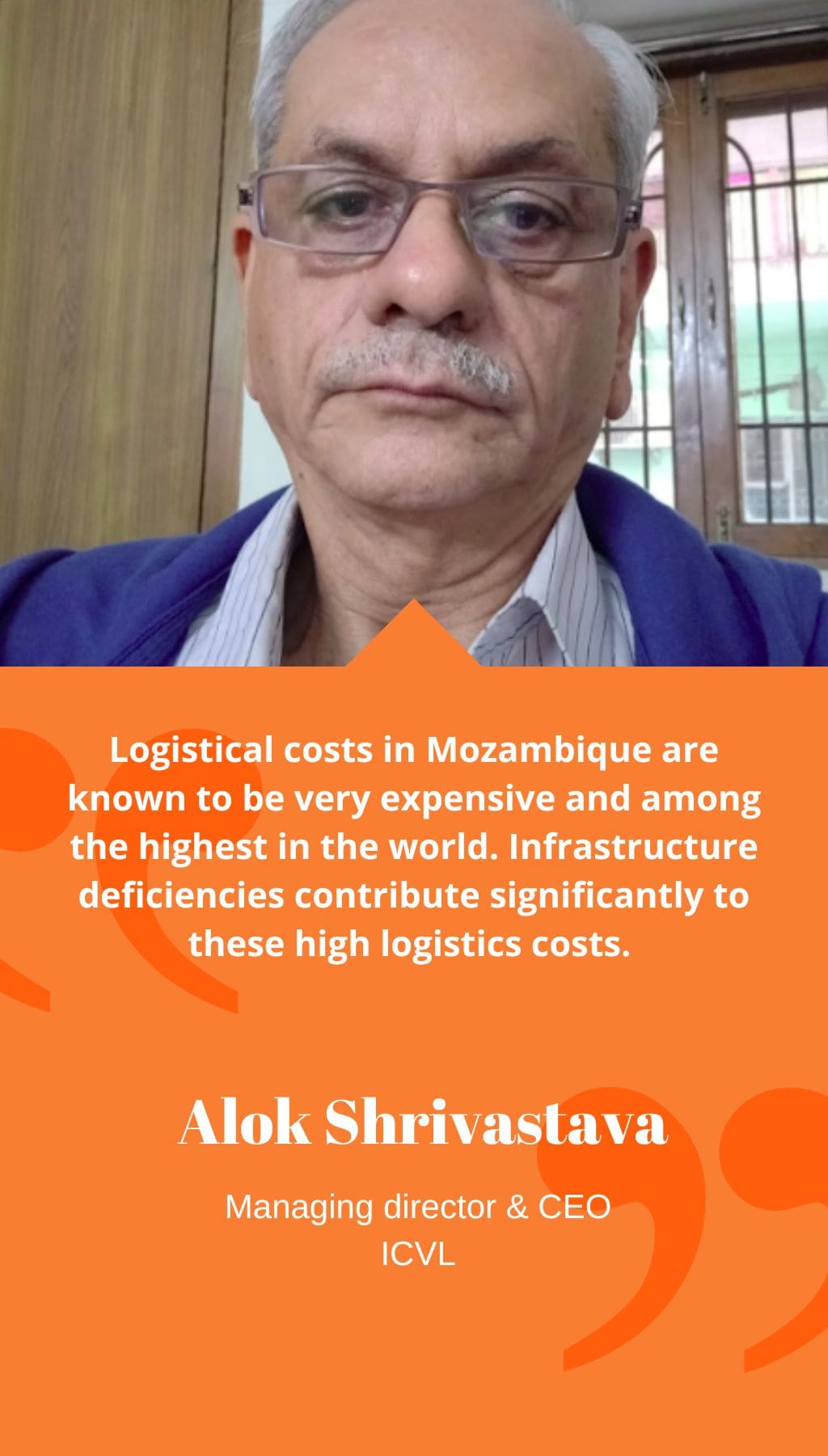
- Mozambique | 24 August 2019

Can you explain the circumstances surrounding the establishment of ICVL in Mozambique?
Certainly. ICVL was established by three public sector undertakings in India with the aim of acquiring investments, particularly in the coking coal sector, outside of India. The primary objective of the company is to secure a stable supply of coking coal for India, as the country does not have sufficient domestic reserves. With India’s target of producing 300 million tonnes of steel, a substantial amount of coking coal is required. Previously, India relied solely on Australia for coking coal, but the government decided to diversify its procurement sources. As a result, ICVL was established to acquire coking coal investments across the globe. Our first acquisition took place in Mozambique when we acquired a shareholding in a mine from Rio Tinto in 2014. However, due to the crash in the coking coal market, ICVL had to suspend its operations in Mozambique in 2015. Fortunately, with the recovery of the coal prices in 2017, we were able to restart our operations.
Can you provide more details about the reopening of the Benga mine in Mozambique and the main challenges ICVL faced during this phase?
Despite the closure of the mine for two years, we maintained our employees and continued to pay them during that period. When we made the decision to reopen the mine, we had retained enough technical expertise to resume operations. Additionally, all the necessary legal requirements for the operation were already in place. Our goal was to commence production within three months, but we encountered a significant challenge. The mine had accumulated a substantial amount of water during the closure, which needed to be pumped out. However, we were unable to find pumps and draining equipment in Mozambique. As a solution, we outsourced the job to a company that imports pumps from South Africa. The plant also required some work to be operational again.
Another challenge we faced was the lack of skilled manpower. To address this, ICVL reached out to local academic institutes in Tete and conducted a recruitment process to attract both experienced and inexperienced staff members. We have a policy of mixing different age groups and levels of expertise to mitigate the high attrition rates typically found in African countries. The recruitment and hiring process took approximately three months, and we anticipate reaching our full workforce capacity by the end of 2019. However, attracting and retaining skilled manpower remains an ongoing challenge in Mozambique.
Mining operations often incur substantial fixed costs, especially in countries like Mozambique with infrastructure deficits. Has ICVL found ways to improve profitability?
Logistical costs in Mozambique are known to be very expensive and among the highest in the world. Infrastructure deficiencies contribute significantly to these high logistics costs. One approach we are taking to enhance profitability is by increasing our volumes, which allows us to reduce logistics costs per unit. We are also engaging with the relevant authorities to improve the maintenance and quality of railway lines, as well as reduce transportation turnover time.
What initiatives is ICVL undertaking as part of its corporate social responsibility (CSR) policy?
As part of our CSR efforts, ICVL is investing approximately US$23 million in the resettlement of the Capanga community. We have outsourced the resettlement process, and so far, the progress has been commendable. By October 2020, we expect to have completed the construction of all 272 houses for the community. In addition to resettlement, we are investing in healthcare facilities and electricity supply for nearby villages. Another significant CSR initiative is our recent memorandum of understanding (MoU) signed with the Ministry of Labor, Employment, and Social Security. Under this agreement, ICVL’s Training Centre in Tete will provide vocational training to local residents, equipping them with technical skills to integrate them into the national workforce.
Where does ICVL envision itself in the Mozambican market over the next three years?
ICVL is closely tied to the Indian steel sector, which is currently the second-largest producer of steel globally. To meet the targets set by the Indian steel sector, we will need to increase our production capacity in Mozambique. Currently, we produce approximately 1.3 million tonnes per year of coking coal. However, our minimum target is to increase this capacity to 1.6 million tonnes per year. ICVL has implemented an upscaling strategy and is currently replacing assemblies on a monthly basis to achieve this goal.














